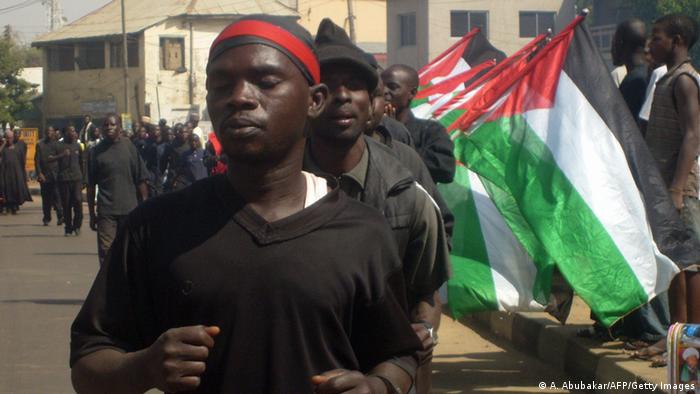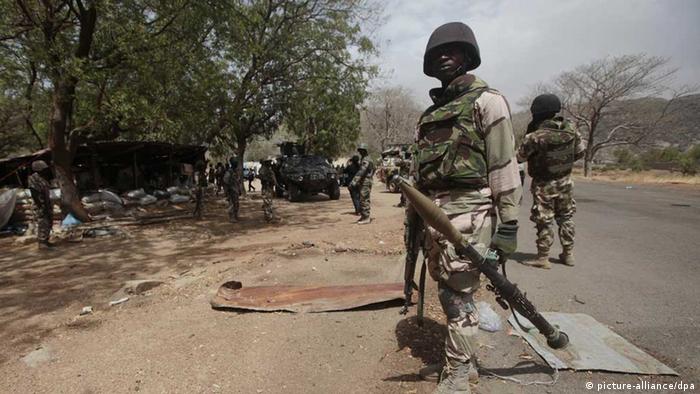
They come from northern Nigeria, Ghana, Chad, Cameroon, Benin and Togo. Clad from head to toe in black, they have been walking together in large groups for days. The pilgrims' destination is the city of Zaria in Kaduna State, northern Nigeria, where they were set to be addressed by Shiite cleric Ibrahim Zakzaky.
"This is the key ritual event of the year for Shiite Muslims, rather like Christmas for Christians" said Professor Roman Loimeier, an expert on Muslim communities in Africa at the University of Göttingen in Germany.


For West African Shiites, Kerbala is a very distant destination for a pilgrimage. They travel instead to Zaria. Mohammed Mukhtar Sahabi, Shiite leader in Kaduna, told DW he is glad he is able to join the pilgrimage. "We thank God that we are members of the generation that loves Imam Hussein and mourns his death," he said. Hussein was with his family when he was killed. "We will also be with our families and children during the procession," he added.
West Africa's young Shiite community
Shiites such as Mohammed Mukhtar Sahabi are a minority among West Africa's Muslims. Most West African Muslims are Sunnis, who, globally, account for 80 percent of all Muslims. Loimeier estimates that just one percent of Nigeria's Muslims are Shiites. There is no deep-rooted Shiite tradition in the region. Their arrival can be explained by a relatively recent historical event, the 1978-1979 revolution in Iran, which sent shock waves through West Africa's Muslim communities. Zakzaky, the Nigerian Shiite cleric, was an enthusiastic supporter of the revolution and spent a considerable amount of time in Iran.
"The first pro-Iranian groups and, at a later date, Shiite groups emerged in Nigeria and in other parts of West Africa in the 1980s as a result of such contacts with Iran," Loimeier said. These groups include Nigeria's Islamic Movement, which Zakzaky leads and is mostly, though not exclusively, Shiite.
The Shiite community in Nigeria has tens of thousands of members and is the largest in West Africa. Its influence extends to other countries in the region such as Ghana or Senegal.
Last Friday (27.11.2015), a Shiite procession near the city of Kano in northern Nigeria was targeted by a suicide bomber. Clad in black, like members of the procession, the bomber ran into the crowd and detonated his explosives. 22 people were killed; a second suspected bomber was arrested. Boko Haram, the Sunni jihadists, who want to create a hardline Islamic state in northern Nigeria, claimed responsibility for the blast.
No comments:
Post a Comment